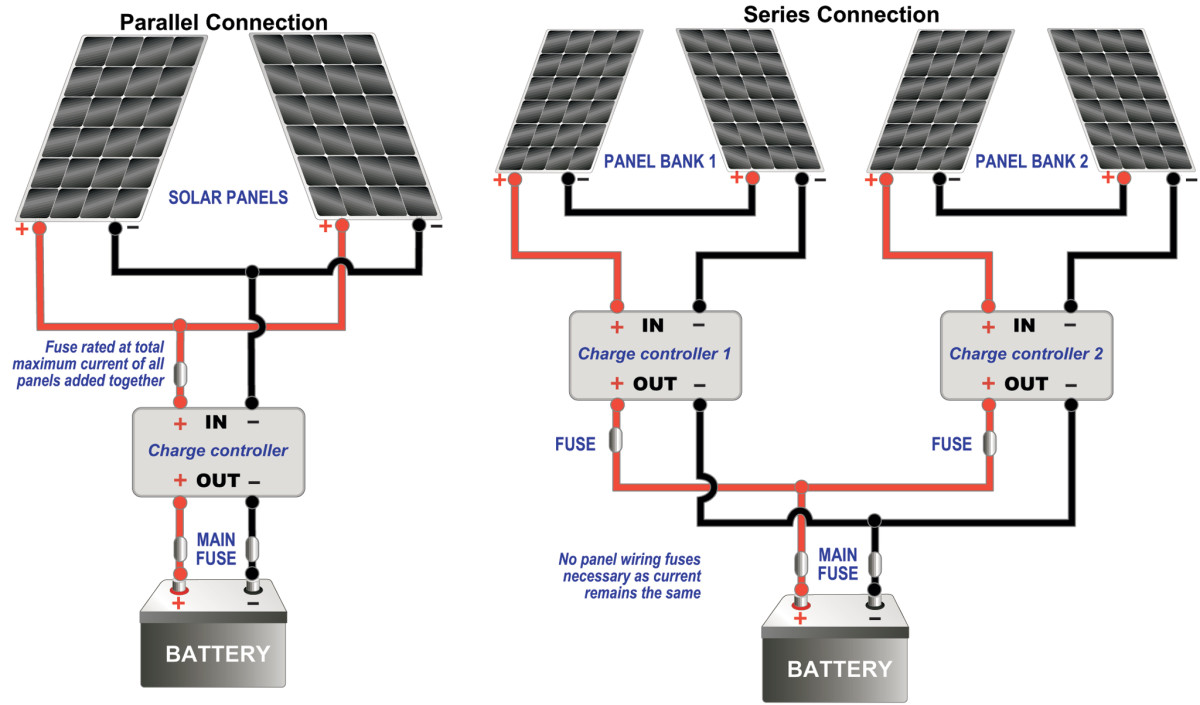A 15-amp fuse is recommended for a 100-watt solar panel to ensure optimal safety and performance. Fuses and circuit breakers play a critical role in safeguarding solar panel systems from risks like overheating and electrical hazards. Seven years of professional electrical engineering experience backs this recommendation.
The amperage rating of the charge controller should match the fuse size for precise electrical safety. For a 30-amp charge controller, a 30-amp fuse is essential. A detailed table is provided for gauge, max amps, and recommended fuse sizes to aid in decision-making.
Various types of fuses are available, each with specific applications and size ranges. ANL fuses, for instance, range from 35 to 750 amps and are generally more cost-effective.
Fuses are indispensable in preventing overcurrent and ensuring the safety of the electrical system. They can be purchased both in physical stores and online, offering convenience for consumers.
What size fuse for 100w solar panel?
My seven years of experience suggest a 15 amp fuse is required for two 100-watt panels. I should mention that the best way to protect your solar panel system is to integrate a fuse and circuit breaker.
A fuse and circuit breaker will help safeguard the wire from getting excessively hot. We prefer to use three distinctive sections to install fuse or breakers.
- Within the charge controller and battery bank
- Within the charge controller and solar panels
- Within the battery bank system and the inverter
I believe these three sections are an indispensable part of the solar electric system. However, it is a bit tricky to measure the size of the fuse. Hence, I prefer to match the amperage rating of the charge controller. For your convenience of understanding, I have given a table below:
| Gauge | Max Amps | Recommended Fuse Size | Maximum Fuse Size |
| 16 | 20 | 25 | 30 |
| 14 | 25 | 31.25 | 37.5 |
| 12 | 35 | 43.75 | 52.5 |
| 10 | 45 | 56.25 | 67.5 |
| 8 | 60 | 75 | 90 |
| 6 | 80 | 100 | 120 |
| 4 | 120 | 150 | 180 |
| 2 | 160 | 200 | 240 |
| 1 | 210 | 262.5 | 315 |
| 0 | 245 | 306.25 | 367.5 |
| 1/0 | 285 | 356.25 | 427.5 |
| 2/0 | 330 | 412.5 | 495 |
| 3/0 | 385 | 481.25 | 577.5 |
| 4/0 445 | 556.25 | 667.5 |
You will get two different types of charge controllers. Hence, based on the types of charge controllers, the fuse needs to be modified. For Pulse Width Modulation, I prefer to use the highest number of amps flow. Moreover, it should match the voltage of the controller as well. In this case, the fuse and wire size would be the same.
For instance, for a 30 amps charger controller, you will need a 30 amps fuse.
Another variety is Maximum PowerPoint Tracking. As the name suggests, the power drawn out from the solar panels would be higher than the battery voltage. It is a bit tricky to determine the size, as the produced power should be measured first.
How do you determine the size of a solar panel fuse?
The hardest part is to determine the second fuse. It is going to be used in solar panels ad charge controllers. Firstly, to determine the size, I consider the number of panels installed in the system. Then I check on the following criteria:
- Series connected
- Parallel connected
- Serially connected
Let me explain the matter more clearly; when the panels are interconnected in the form of a series, the voltage will be simultaneously added. However, the rate of amperage will remain the same.
For instance, for four 100W panels (generating 20 volts and five amps), the entire output would be 80 volts and five amps. In the next step, you have to measure the real amps value and multiply the numbers with an average safety value of 25%. Finally, it will culminate in the fuse size.
Hence, the equation would be something like this:
4 panels of 100W, producing 5 amps power, therefore, generating (4 x 5 x 1.25) = 28.75 Amps. Therefore, it is recommended to use a 30 amps fuse for a structure like this.
Apart from the right fuse choice, it is crucial to ensure the cable sizes, length of the cable, types of a circuit breaker, and fuse in a solar system.
Types of Fuse also play a crucial role in ensuring the system’s safety. Thus, it is crucial to know the different types of fuse available in the market:
- Spade Fuse: these are Vehicle fuses. If you have lower amperage devices, it will work. The usual size of the fuse is around 15 amps.
- ANL fuses: the size ranges from 35 to 750 amps. These are cheaper and used to connect and disconnect electrical tools.
- Re-settable breakers: these breakers are available from 25 amps to 200 amps. If you have to disconnect the connections regularly, it is ideal to use Re-settable breakers.
Why do you need to have a fuse for your 100w solar panel?

Again, as I have mentioned earlier; also, those fuses are an indispensable part of the entire solar system. And the most crucial part is to integrate a fuse in the connection between the charge controller and battery because there is always a risk of overheating chances of potential failure in the system.
No matter how well-made your wire system is, it cannot save you from overheating. If you have already installed solar panels without a fuse, your photovoltaic system is in DANGER!
Hence, the sole function of the fuse is to ensure safety and protect the electrical circuit. When the wires get overheated, the fuse gets broken. Then, it further stops the flow of current immediately. Hence, the fuse can prevent overcurrent and ensure the electrical system’s safety.
Where can you buy a fuse for your 100w solar panel?
Fuse is a very common part of the electrical system. Fuses are easily available in all electrical hardware stores, no matter what size you require. You can simply visit a store nearby and order your required item.
On the other hand, if you are more comfortable shopping online. Amazon has all the top brands of fuse. For a parallel series connection, you can order a 30 amps fuse.

Eng. Matthew Joseph Nandirio is the Founder of walkingsolar.
After graduating from the University of Houston in 2002, matt started working as a Solar Electrical Engineer for several multi-national solar energy companies.
He has a wide range of experiences including solar system requirement analysis, planning, maintaining, debugging and even solar device development through research.
He now shares his 20 years of expertise through his articles on the walkingsolar website.
Further, he is also the author of two books on Solar Technology, “Solar Power for Villages” and “DIY Solar System for Dummies”.

